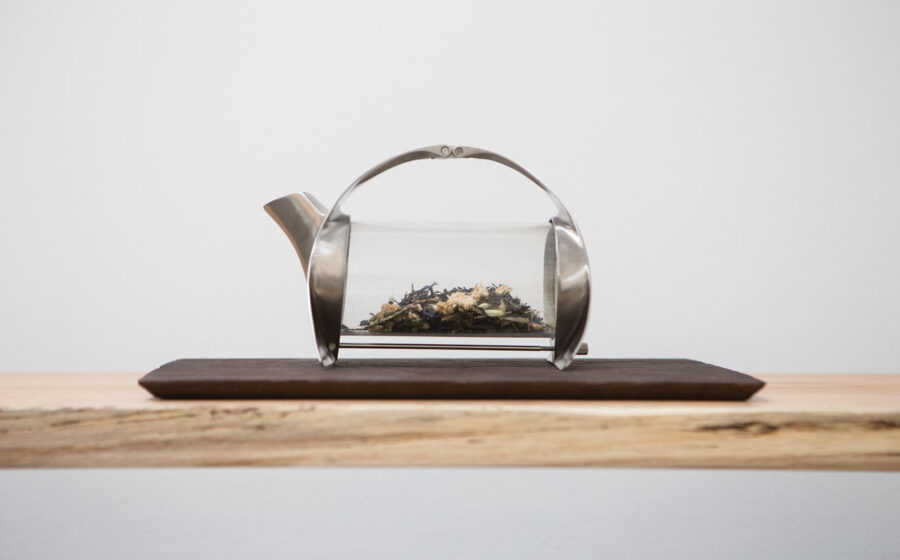[O]ne of the entrancing and ever-inspiring elements of tea is how it so often lands between beautiful and functional. Think of a puck of pu-erh, created for export but so pretty it’s a shame to pick it apart. Or rolled tea, the delicate leaves protected in their round shape and when steeped unfurling in glory.
That same spirit, of things that are artful but get a job done, sums up Joey Roth’s northeast Portland showroom and studio. The industrial designer first made waves in the coffee industry when Blue Bottle’s James Freeman commissioned him to create a revamped moka pot. Freeman had outfitted a shop with Roth’s stunning ceramic speakers and wanted a moka pot that fit that aesthetic, which was already uncannily aligned with Blue Bottle’s. The shiny, white ibrik-inspired brewer—which also greatly improved upon the function of the finicky original—sold out fast, even for a Blue Bottle offering.
Roth didn’t get into industrial design to get into coffee—or tea, for that matter—but something about the pairing seems to inspire him. Stepping into the small studio he rents in north Portland (it’s a single room with a loft, tucked into the hallway behind Ristretto Roasters), the first thing that catches the eye is the Sorapot, a modern teapot with tubular belly and heavy, stainless-steel frame and spout. Industrial might describe the materials, but the teapot’s lines are smooth and, in their way, pretty. As is the floral, green tea blend that T Project crafted to go with the vessel.

Continued browsing through Roth’s studio unveils other projects, not tea-related: the aforementioned speakers, a steel desk speaker, etched woodblocks, the moka pot, self-watering planters, prints, and, shedding its glow over all, a geometric neon collaboration between Roth and local maker the Tiny Spoon. There is a bench, a plant, a shelf, and a desk. Upstairs, a single long table is dusted in a designer’s detritus: sketches, rulers, and half-built things.

The diversity of Roth’s work makes the depth with which he has considered beverages—artistically and as an engineer—remarkable. This is in no way a café—there is no hot water brewing—and it isn’t even really a gallery. It’s a storefront, but the foot traffic Roth receives is intentional; people look him up. The New Jersey native, who moved to Portland from San Francisco several years ago, has set up a space where his inventions can act like art in the gallery below, while upstairs, Roth imagines. One of his next projects will use what is potentially tea’s oldest serving material—Chinese Yixing clay—for an elegant and nontraditional brewing vessel, with perfect steeping the functional focus.
—Regan Crisp is a writer based in Portland.











